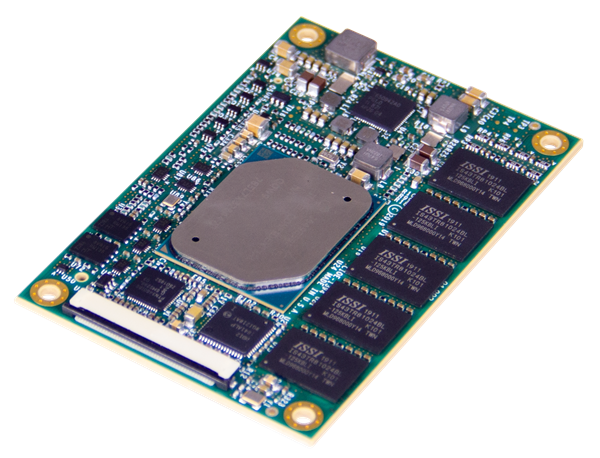
Mercury Systems, Inc. on Jan. 20 unveiled its CIOE-1390 multi-core processor module for helicopters and urban air mobility vehicles (Mercury Systems, Inc. Photo)
Mercury Systems, Inc. on Jan. 20 unveiled its EnsembleSeries™ CIOE-1390 module for helicopters and urban air mobility vehicles.
The company hailed the CIOE-1390 as “the industry’s first commercially-available compute module with Intel® Atom® multi-core processors and embedded BuiltSAFE™ technology for flight safety certification.”
The new COM Express®-based processor modules, which the company expects to be available by June, “leverage the collaboration between Intel and Mercury’s design and flight safety certification experts to address the demand for onboard processing power needed for smarter and more integrated avionics applications on rotary-wing platforms and Urban Air Mobility vehicles,” according to Mercury Systems.
Ike Song, vice president of Mercury’s Mission Systems group, told Avionics International in a recent interview that he foresees a high demand for multi-core processors in the UAM and military markets.
For example, the Bell 360 Invictus in the U.S. Army’s Future Attack Reconnaissance Aircraft (FARA) competition features a Collins Aerospace Next Generation Flight Deck, which will include Collins Aerospace multicore processing components. The functionality of what previously would have required multiple computers will now be enabled on one box, according to Collins Aerospace.
The Army is pursuing a modular open systems approach (MOSA) digital backbone to allow plug and play capabilities for the FARA’s avionics and mission systems.
In the recent interview, Song also said that the company expects multi-core design assurance level-A (DAL-A) certification by March for Mercury’s ROCK-2 mission computing architecture for in-service airplanes.
Regarding the CIOE-1390, Song said that “we are seeing a significant increase in the requirements for manned and unmanned platforms to have their fused sensor streams, platform management, and effector controls such as avionics and vetronics flight safety certified for both defense and commercial aerospace applications.”
“At the intersection of technology and defense, Mercury is collaborating with technology leaders like Intel to deliver the most cutting-edge flight safety-certifiable multi-core processing resources needed to power our customers’ most advanced and contemporary platforms while leveraging the latest commercial technologies, reinforcing our commitment to Innovation that Matters,” Song said.
Robert McGrail, a spokesman for Mercury Systems, wrote in an email to Avionics International on Jan. 21 that “we have seen significant interest from several prime contractors about the CIOE as well as our other safety-certifiable solutions.”
While avionics experts have said that the use of multi-core processors can lead to processing delays and interference among different avionics applications running simultaneously, Mercury Systems suggested that more companies will have to move to multi-core processors.
“With the advent of more capable and available mobile platforms, traditional single-core processors are becoming overtaxed,” the company said. “Although comparatively easy to certify, single-core processors increasingly lack the performance required to drive next-generation smart platforms. Additionally, future roadmap support from single-core safety-critical chip fabricators is diminishing.”
The company said that it “is solving the performance and availability challenge by working closely with Intel to launch powerful multi-core processing solutions with deliverable design assurance level (DAL)-C artifacts for mission-critical, flight safety-certifiable applications.”
“Powered by Intel Atom multicore processors, the new CIOE-1390 COM Express module delivers a full x86 processing architecture for embedding into applications that must be deployed in the harshest environments,” according to Mercury Systems.